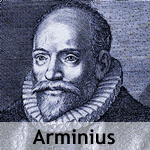Exam practice
There are two different types of question here: Are we determined? Are we free to do good? The first is easy to answer - state the Hard Determinist position, show how the Libertarian refutes determinism and provide additional Libertarian arguments, then conclude by showing why free will requires determinism (Soft Determinism). If you have to talk about morality (the second type of question), you should link each of the points you make to moral choices. For example, Biological Determinism - the 'criminal gene', kleptomania etc; Psychological Determinism - Darrow's defence of Leopold and Loeb, and so on.
June 2014
‘Our moral choices are completely determined by our upbringing and social conditioning.’ Discuss.
June 2013
‘Without freedom it is impossible to make moral choices.’ Discuss.
January 2012
Critically assess the claim that free will and determinism are compatible. [35]
June 2011
Critically assess the view that we are not responsible for our evil actions. [35]
In January 2011, this question came up:
'Our ethical decisions are merely the result of social conditioning.' Discuss. [35]
The examiners' report made the following comments:
This was a very popular choice amongst candidates and produced some very interesting responses. The vast majority of candidates recognised the question as making reference to determinism, and were able to make a response on this basis. Many candidates seemed keen to analyse the concept of social conditioning and made direct reference to the work of behaviourists such as Skinner and Pavlov; this approach was generally supported with reference to Darrow’s defence in the Loeb trial. Most candidates were able to contrast this with other hard determinists. Some candidates were unclear as to how this might affect ethical decision-making, but most were able to give good examples of ethical decisions which might be influenced by social conditioning.
Some candidates simply explained all the different approaches from hard determinism through soft determinism and libertarianism, with good use of relevant scholars. Other candidates made good use of the word ‘merely’ in the question and were able to posit alternative sources for ethical decisions.
Candidates responded to the question using different approaches. Some used conscience, with a reasonable degree of success, whilst others used meta-ethical theories. Those who focused on answering the question were successful whatever approach they took.
In June 2010, this was asked:
Critically assess the claim that people are free to make moral decisions. [35]
The examiner's report said:
This was the most popular question and there were a number of excellent responses. Much depended on whether the candidates understood the terms ‘critically assess’. Many candidates did not engage with the question and seemed just to talk in general terms about Hard/Soft Determinism etc, concluding with their own particular view. There seemed to be a very real discrepancy within responses between the quality of the argument, knowledge and discussion on Hard Determinism and the other two approaches. Generally, sections on Hard Determinism made reference to many scholars including Newton, Hospers, Skinner and Pavlov. It was rare that an essay failed to mention Clarence Darrow, although the actual details varied somewhat. There was also wide use of Calvin and Predestination, although candidates seemed less secure in their knowledge and understanding in this section. Some did mention Sartre, but with little development or application of his ideas.
However, some candidates used a wide range of knowledge, form Heisenberg, Chaos Theory, Iron Block Universe etc, and were able to apply this successfully to free moral decision making.
The following is a sample exam question written by OCR:
‘Unless we assume that everyone is free to make moral choices, we have no right to punish criminals.’ Discuss. [45]
(taken from the OCR website - mark scheme included there)#
This question is from June 2006:
'People are not free to make moral decisions.' Discuss. [45]
In June 2008, this came up:
‘We are free to make ethical decisions.’ Discuss. [45]
We now have an interactive diagram showing how to answer an ethics exam question. The 'structure' of the paragraph will be different for 'ethical theory' questions, but the basic principles are the same. Try filling it in yourself and print out the completed diagram.

